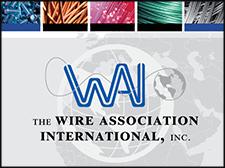DSM and JuggerBot 3D launch trial program for 3D printing industrial applications using high performance materials.
Manufacturers can validate the benefits of additive manufacturing and build technology expertise without the need for upfront capital investment.
DSM and JuggerBot 3D launch trial program for 3D printing industrial applications using high performance materials.
Youngstown, USA, 7 March 2019 - Royal DSM, a global purpose-led, science-based company in Nutrition, Health and Sustainable Living, and JuggerBot 3D, an additive manufacturing machine builder specializing in production 3D printing, today announced a trial program for companies to evaluate engineering-grade materials in an industrial-grade filament printer without the upfront investment in hardware.
"While adoption of additive manufacturing (AM) in production environments is increasing rapidly, many companies continue to face challenges as they work to adopt the technology," said Jill Cohen, Global Marketing & Sales Director Additive Manufacturing at DSM. "The two issues reported most frequently are the cost of equipment (and/or limited investment budget) and the lack of in-house expertise on various 3D printing technologies."
To help overcome these challenges, DSM and JuggerBot 3D are initiating a trial program to offer selected companies the use of an industrial-grade JuggerBot 3D printer for testing DSM engineered materials.
"For additive manufacturing to make it into mainstream production, it requires industrial-grade printers that can process engineered materials in a reliable and consistent way," explains Daniel Fernback, CEO of JuggerBot 3D. "JuggerBot 3D has focused the design of their systems to be uniquely capable of processing a wide variety of high performance, engineered materials - like DSM's line of thermoplastics for additive manufacturing."
JuggerBot 3D's printers are material-agnostic and standalone systems, with a built-in unit to keep filaments dry before processing them in the machine. Its patented Interdependent Drive System, using both push and pull filament extrusion forces, makes it the most flexible system on the market. Easy and streamlined production is made possible thanks to controls and software, including material profiles, that have been built into the system. JuggerBot 3D builds the printers at their facility in Youngstown, Ohio.
Initial trial customers include 3D printing service bureaus and design companies active in transportation, consumer appliances and medical prosthetic devices & sockets. They will receive hardware- and material- support throughout the entire trial period and only pay for a deposit and the materials consumed.
Companies can apply for participation by visiting 'juggerbot3d.com/DSM-additive-manufacturing-customer-trials/' or contacting JuggerBot 3D (information@juggerbot3d.com), or DSM Additive Manufacturing (additive.manufacturing@dsm.com). The program is currently only available in the USA.
Featured Product

The Wire Association International (WAI), Inc.
The Wire Association International (WAI), Inc., founded in 1930, is a worldwide technical society for wire and cable industry professionals. Based in Madison, Connecticut, USA, WAI collects and shares technical, manufacturing, and general business information to the ferrous, nonferrous, electrical, fiber optic, and fastener segments of the wire and cable industry. WAI hosts trade expositions, technical conferences, and educational programs.
